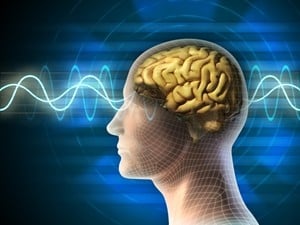 Graduates with a medical assistant education will interact with many people with differing degrees of cognitive health. The decline of brain function as people get older can lead to conditions like Alzheimer’s and dementia. Researchers are working to find ways to improve one’s brain function even as the brain ages. Brain function can improve as one ages The brain experiences aging much like muscles do. Yet, while certain aspects of the mind may diminish over time, like memory, others may increase, including knowledge and wisdom. The aging process and how it affects one’s daily life differs for each person. While cognitive health is a concern, the Institute of Health wants people to realize that serious decline is not imminent.1 It is important to remember that everyone’s body and brain will age, but not everyone will experience aging in the same way. For those who aren’t diagnosed with Alzheimer’s or a form of dementia, there are ways to deal with cognitive decline that will still keep one’s mind active.1 Those steps can be laid out for you by a medical professional, but first, it is crucial to understand the difference between dementia and cognitive decline. Dementia vs. mild cognitive impairment: a small overlap There are varying degrees of memory loss, starting with mild cognitive impairment. People who experience this condition usually recognizes moments of memory loss in simple situations, including misplacing keys occasionally or forgetting someone’s name, then remembering it later in the day. These “senior moments” happen semi-frequently, and don’t tend to disrupt one’s work or social life.2 Those experiencing MCI usually find ways to adapt to these brief moments of forgetfulness, whether they make lists or develop specific strategies to ensure that they don’t leave behind something important. The next tier in memory loss is dementia, a condition where a group of symptoms severely affects one’s daily life. Not limited to just memory loss, dementia encompasses other brain functions as well, including language, motor function, personality and behavioral changes.2 Some causes of dementia can be reversed if they’re connected to things like a vitamin deficiency, depression or an underactive thyroid. If the reversible causes of dementia are ruled out, Alzheimer’s can be diagnosed as the cause for dementia.2 The disease is marked by a gradual decline in brain function; MCI and dementia patients can remain stable for a long period of time if their symptoms can be managed. Most cases of Alzheimer’s start with MCI and graduate through the tiers, but not all people affected by MCI will develop Alzheimer’s.2 It is vital for students in medical assistance programs and family members of those affected to recognize the differences between the three conditions to better assist patients dealing with declining cognitive health. Healthy diet can reduce memory loss A recent study published in the journal Neurology supports the notion that a healthy diet reduces the onset of memory loss.3 Previous studies have linked certain healthy eating styles, including the Mediterranean diet, to increased cognitive function, but this research states that improving overall diet quality may reduce the risk of memory loss.3 A diet that incorporates fruit, whole grains, healthy fats, fish and vegetables – especially broccoli and spinach – is an important factor in reducing the risk of cognitive decline, compared to an eating schedule with a heavy dose of saturated and trans fats, according to New York-based nutritionist Lisa Drayer. 3 Due to the correlation between increased cognitive decline and cardiovascular disease, participants with a higher risk of heart disease were chosen for this research. Followed for five years, patients underwent thinking and memory tests at the beginning, two-year and five-year mark of the study. Results showed that those with the healthiest diets were 24 percent less likely to have decreased cognitive function than the participants with the less healthy diets.3 The healthier group was older and more physically active, had a lower BMI and was less likely to smoke. Those who met the recommended dietary standards daily for healthy foods, like fruits and vegetables, would receive a higher score than those who did not. Although diet is an important aspect of maintaining healthy brain function, there are several other steps one can take to stave off declining cognitive health. Sleep and stimulating activity help cognition Getting adequate sleep during youth and middle-age can help with increased cognition and health when one is older, according to a study by Baylor University’s Sleep Neuroscience and Cognition Laboratory.4 As the quantity and quality of sleep changes with age, so does the memory retention associated with it. When people are young, “slow brain wave sleep” replays the day’s memories, which reinforces them for better recollection.4 For middle-aged sleepers, naps can help reduce cognitive decline, especially if they’re used in addition to a good night’s sleep. As individuals age and the quality of sleep is interrupted by waking up throughout the night, one’s cognition can be greatly affected. Staying physically, socially and intellectually active is another way to remain cognitively sound.1 Mixing easier exercises, like walking, and strength training, which builds bone density, can keep seniors agile in both mind and body.5 Social interaction with friends and family, as well as intellectual stimulation, like reading and doing mind games, can minimize the effects of MCI and aid in increased cognition.1 Continued mental recollection is affected by multiple factors, but men and women of all ages can always be working to improve their mental recall. By incorporating things like a healthy diet and exercise into their daily routine, people can remain aware of their mental state and how it changes over time. For certified medical assistants and other professionals, it is crucial to understand the aspects of declining cognition to better serve and treat patients affected by it. 1“Everything ages, even your brain. Don’t worry so much. It’s probably not Alzheimer’s, ” Lenny Brillstein, The Washington Post, April 14, 2015. http://www.washingtonpost.com/news/to-your-health/wp/2015/04/14/everything-ages-even-your-brain-dont-worry-so-much-its-probably-not-alzheimers/ 2“Alzheimer’s, dementia and MCI overlap, but have different meanings,” Angela Lunde, Mayo Clinic, March 3, 2012. http://www.mayoclinic.org/diseases-conditions/alzheimers-disease/expert-blog/dementia-definitions/bgp-20055922 3“Healthy diet may improve memory, says study,” Azadeh Ansari, CNN, May 6, 2015. http://www.cnn.com/2015/05/06/health/healthy-eating-preserves-memory-study/ 4“Invest in a good night’s sleep now, enjoy greater memory recall later,” Stephanie Castillo, Medical Daily, Jan. 24, 2015. http://www.medicaldaily.com/invest-good-nights-sleep-now-enjoy-greater-memory-recall-later-319292 5“What is a healthy brain? New research explores perceptions of cognitive health among diverse older adults,” Centers for Disease Control and Prevention, 2005-2009. http://www.cdc.gov/aging/pdf/perceptions_of_cog_hlth_factsheet.pdf
Graduates with a medical assistant education will interact with many people with differing degrees of cognitive health. The decline of brain function as people get older can lead to conditions like Alzheimer’s and dementia. Researchers are working to find ways to improve one’s brain function even as the brain ages. Brain function can improve as one ages The brain experiences aging much like muscles do. Yet, while certain aspects of the mind may diminish over time, like memory, others may increase, including knowledge and wisdom. The aging process and how it affects one’s daily life differs for each person. While cognitive health is a concern, the Institute of Health wants people to realize that serious decline is not imminent.1 It is important to remember that everyone’s body and brain will age, but not everyone will experience aging in the same way. For those who aren’t diagnosed with Alzheimer’s or a form of dementia, there are ways to deal with cognitive decline that will still keep one’s mind active.1 Those steps can be laid out for you by a medical professional, but first, it is crucial to understand the difference between dementia and cognitive decline. Dementia vs. mild cognitive impairment: a small overlap There are varying degrees of memory loss, starting with mild cognitive impairment. People who experience this condition usually recognizes moments of memory loss in simple situations, including misplacing keys occasionally or forgetting someone’s name, then remembering it later in the day. These “senior moments” happen semi-frequently, and don’t tend to disrupt one’s work or social life.2 Those experiencing MCI usually find ways to adapt to these brief moments of forgetfulness, whether they make lists or develop specific strategies to ensure that they don’t leave behind something important. The next tier in memory loss is dementia, a condition where a group of symptoms severely affects one’s daily life. Not limited to just memory loss, dementia encompasses other brain functions as well, including language, motor function, personality and behavioral changes.2 Some causes of dementia can be reversed if they’re connected to things like a vitamin deficiency, depression or an underactive thyroid. If the reversible causes of dementia are ruled out, Alzheimer’s can be diagnosed as the cause for dementia.2 The disease is marked by a gradual decline in brain function; MCI and dementia patients can remain stable for a long period of time if their symptoms can be managed. Most cases of Alzheimer’s start with MCI and graduate through the tiers, but not all people affected by MCI will develop Alzheimer’s.2 It is vital for students in medical assistance programs and family members of those affected to recognize the differences between the three conditions to better assist patients dealing with declining cognitive health. Healthy diet can reduce memory loss A recent study published in the journal Neurology supports the notion that a healthy diet reduces the onset of memory loss.3 Previous studies have linked certain healthy eating styles, including the Mediterranean diet, to increased cognitive function, but this research states that improving overall diet quality may reduce the risk of memory loss.3 A diet that incorporates fruit, whole grains, healthy fats, fish and vegetables – especially broccoli and spinach – is an important factor in reducing the risk of cognitive decline, compared to an eating schedule with a heavy dose of saturated and trans fats, according to New York-based nutritionist Lisa Drayer. 3 Due to the correlation between increased cognitive decline and cardiovascular disease, participants with a higher risk of heart disease were chosen for this research. Followed for five years, patients underwent thinking and memory tests at the beginning, two-year and five-year mark of the study. Results showed that those with the healthiest diets were 24 percent less likely to have decreased cognitive function than the participants with the less healthy diets.3 The healthier group was older and more physically active, had a lower BMI and was less likely to smoke. Those who met the recommended dietary standards daily for healthy foods, like fruits and vegetables, would receive a higher score than those who did not. Although diet is an important aspect of maintaining healthy brain function, there are several other steps one can take to stave off declining cognitive health. Sleep and stimulating activity help cognition Getting adequate sleep during youth and middle-age can help with increased cognition and health when one is older, according to a study by Baylor University’s Sleep Neuroscience and Cognition Laboratory.4 As the quantity and quality of sleep changes with age, so does the memory retention associated with it. When people are young, “slow brain wave sleep” replays the day’s memories, which reinforces them for better recollection.4 For middle-aged sleepers, naps can help reduce cognitive decline, especially if they’re used in addition to a good night’s sleep. As individuals age and the quality of sleep is interrupted by waking up throughout the night, one’s cognition can be greatly affected. Staying physically, socially and intellectually active is another way to remain cognitively sound.1 Mixing easier exercises, like walking, and strength training, which builds bone density, can keep seniors agile in both mind and body.5 Social interaction with friends and family, as well as intellectual stimulation, like reading and doing mind games, can minimize the effects of MCI and aid in increased cognition.1 Continued mental recollection is affected by multiple factors, but men and women of all ages can always be working to improve their mental recall. By incorporating things like a healthy diet and exercise into their daily routine, people can remain aware of their mental state and how it changes over time. For certified medical assistants and other professionals, it is crucial to understand the aspects of declining cognition to better serve and treat patients affected by it. 1“Everything ages, even your brain. Don’t worry so much. It’s probably not Alzheimer’s, ” Lenny Brillstein, The Washington Post, April 14, 2015. http://www.washingtonpost.com/news/to-your-health/wp/2015/04/14/everything-ages-even-your-brain-dont-worry-so-much-its-probably-not-alzheimers/ 2“Alzheimer’s, dementia and MCI overlap, but have different meanings,” Angela Lunde, Mayo Clinic, March 3, 2012. http://www.mayoclinic.org/diseases-conditions/alzheimers-disease/expert-blog/dementia-definitions/bgp-20055922 3“Healthy diet may improve memory, says study,” Azadeh Ansari, CNN, May 6, 2015. http://www.cnn.com/2015/05/06/health/healthy-eating-preserves-memory-study/ 4“Invest in a good night’s sleep now, enjoy greater memory recall later,” Stephanie Castillo, Medical Daily, Jan. 24, 2015. http://www.medicaldaily.com/invest-good-nights-sleep-now-enjoy-greater-memory-recall-later-319292 5“What is a healthy brain? New research explores perceptions of cognitive health among diverse older adults,” Centers for Disease Control and Prevention, 2005-2009. http://www.cdc.gov/aging/pdf/perceptions_of_cog_hlth_factsheet.pdf



